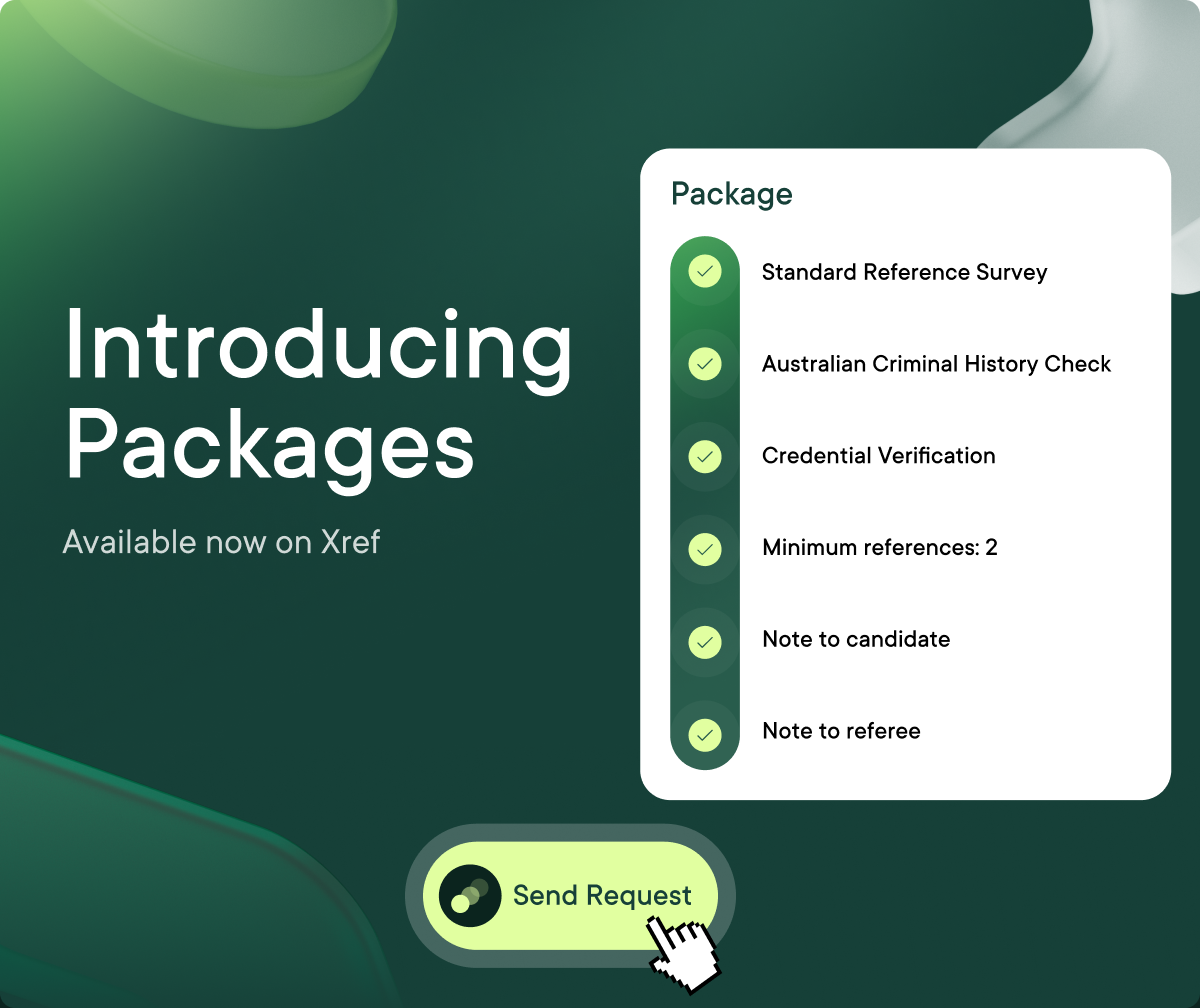


Give your people a voice with a tailored Xref Engage survey.
Increase retention and reduce turnover with quick employee feedback from an Xref Pulse Survey.
Disclose. Discuss. Discover. came to Vancouver to facilitate a fantastic conversation around the expansive topic of Smart HR.
Thanks to Thoughtexchange, we were able to gather attendees’ questions prior to the panel getting started and cover off the most popular queries in the room.
Here, in the first of a two-part series, we explore some of the insights shared by our panelists Sarah Blackmore from Eventbase, Chris Yeh from Clio, and Alex Chapple from Thoughtexchange - all expertly guided through the evening by our moderator Bob St-Jacques from 7Geese.
Sarah: I think we're in this really unique space right now where HR tech has dominated this market. It's incredibly intuitive, it can streamline what we do and we can gain huge insights from that but I'm still a big believer that, no matter how good the HR tech is, we are all human. We are looking for human qualities and traits in people that we hire, train and retain in our organisations. So, that really does mean that humans need to be involved because this is a business of emotion and technologies just can't replace that.
Chris: I would mostly agree. I think you can almost remove the human element from every aspect of HR if you try hard enough, so performance, recruitment, compensation, everything, there are ways in which you can increase operational excellence across the board and make everything low touch and extremely scalable. But then you lose the human element of actually having interactions with people. I've seen that in some onboarding programs where you can use a program to communicate during onboarding but then you lose all interaction with the individual. Some people love that but others will question the fact that no one’s spoken to them during their first few weeks in the business.
Alex: That's a good point. I think that it's part of our role to be looking at what each individual needs from us to feel fully integrated and fully bought in to the place in which they're working. For devs, that might be different to what’s needed by those in customer service or sales, for example. So we have to be deciding what can be automated for somebody and what can't because if we treat everybody in the exact same way, it's harder to get everybody's buy-in.
Sarah: I think there's a couple of ways. A really well-tailored approach to recruitment is a high touch. Candidates should never feel like they've gone into a black hole. They should never be left guessing where their application is at and so a great way to leverage recruitment technology is to be able to automate maintaining that level of what feels like personal attention from that corporate HR department.
Whether that's automated acknowledgments that we have received their resume, that we've looked at it, even if it's a decline and it's a no, you can automate those elements and at least they're never left guessing.
Chris: I would say where tech really offers us value is being able to signal different things for us about an individual. So, surveys are actually a really good example as we can tighten feedback loops really quickly. Above and beyond just going to them and asking them how things are going. It gives us a better avenue to see if a person is stuck, or they need more assistance when it comes to their onboarding and allows us to actually create multiple paths as opposed to a one size fits all approach.
Alex: Look people in the eyes.
Sarah: That's a great one. Looking people in the eyes offers this level of authenticity that we sometimes forget. Actually, all we're here to do is witness each other's existence and if you look someone in the eye and ask them how they're feeling, I mean, is there any more assuring way to feel like you matter?
Chris: I’d add, getting back to people. So when we talk about feedback loops, that is really the most important piece. Everyone expects when you're asking for feedback and they’re providing it, that something's actually going to happen. So, being able to actually respond really quickly and find ways to close the loop on different things.
For example, when it comes to our office - when people are giving us feedback we can see what we can actually do and let them know when we plan to get back to them. Often times, what happens is we talk about the employee experience, we talk about all these great things that we're doing, but when people actually provide actionable feedback, we push back as we think we already have things under control. We've got a plan, and we don't actually want to hear what people have to say.
Alex: I'm from Thoughtexchange and we actually use our own product internally all the time to hear back from each other about what is important, what matters to our employees, what is coming to the top of what they want to be talking about and hearing about. So, instead of asking what's working well, we're asking how they feel and finding out from them about what we can do to make their experience better.
Chris: In some ways, technology doesn't really help in developing leaders. For us, the main thing that has been helpful has been the surveying tools. We use Culture Amp for regular surveys and one of the things that we're about to launch is a more lightweight eNPS type survey. All of this gives us information on how well teams are doing, and how well managers are doing, which allows us to hone our business partnerships by being able to flag when a team is struggling in a particular area.
We're quite upfront in our approach. We’re clear when a leader is getting something wrong, instead of trying to dance around it. One thing our product department has done that we hope to extend across the company is weekly health checks. So, each team goes through a weekly cadence of asking team members questions such as:
And those are all things that they then debrief as a team on a weekly basis and that gives immediate feedback for the manager to see how they are aligning their team. If they're not sure, we get pulled in to help facilitate a conversation.
But, one of the things that we encourage is that answers to the questions are anonymous. What we want to reinforce is that by doing these debriefs you realise there's no retribution or anything that happens by talking about this at a group level. So, as long as you reinforce that it's okay for you one, not to respond or two, to have dissenting opinions, then you get higher and higher participation rates over time.
Alex: You can prove your value by the awesome, wicked teams you create and there's a lot of analytics that come into all of that, but if you've got engaged fantastic teams who are feeling heard and feeling empowered, then that's going to move the needle forward in your business.
Sarah: I think the other point to actually add to that is it should speak for itself. If you don't empower your people to deliver on the business results that are most important, then you're not in the right business. You need to understand what your outputs are so you can empower people to just go get them. That has to be the only thing that matters. Know what you're aiming for and just line them up.
Chris: Yeah, I would say around technology, our approach has always been to start with the thing that doesn't scale, see if it actually offers value, and once it does, then you scale it using technology. So, by doing that you see all the different points where you're entering and managing data and by introducing a single tool, you can increase your ability to actually maintain the recruitment operations of it and that's immediate ROI.
If all these insights have left you wanting more, keep an eye out for part 2 of the Vancouver discussion, which we’ll be adding to the blog in the coming days, and stay tuned for future Disclose. Discuss. Discover. events globally, via our events page.
